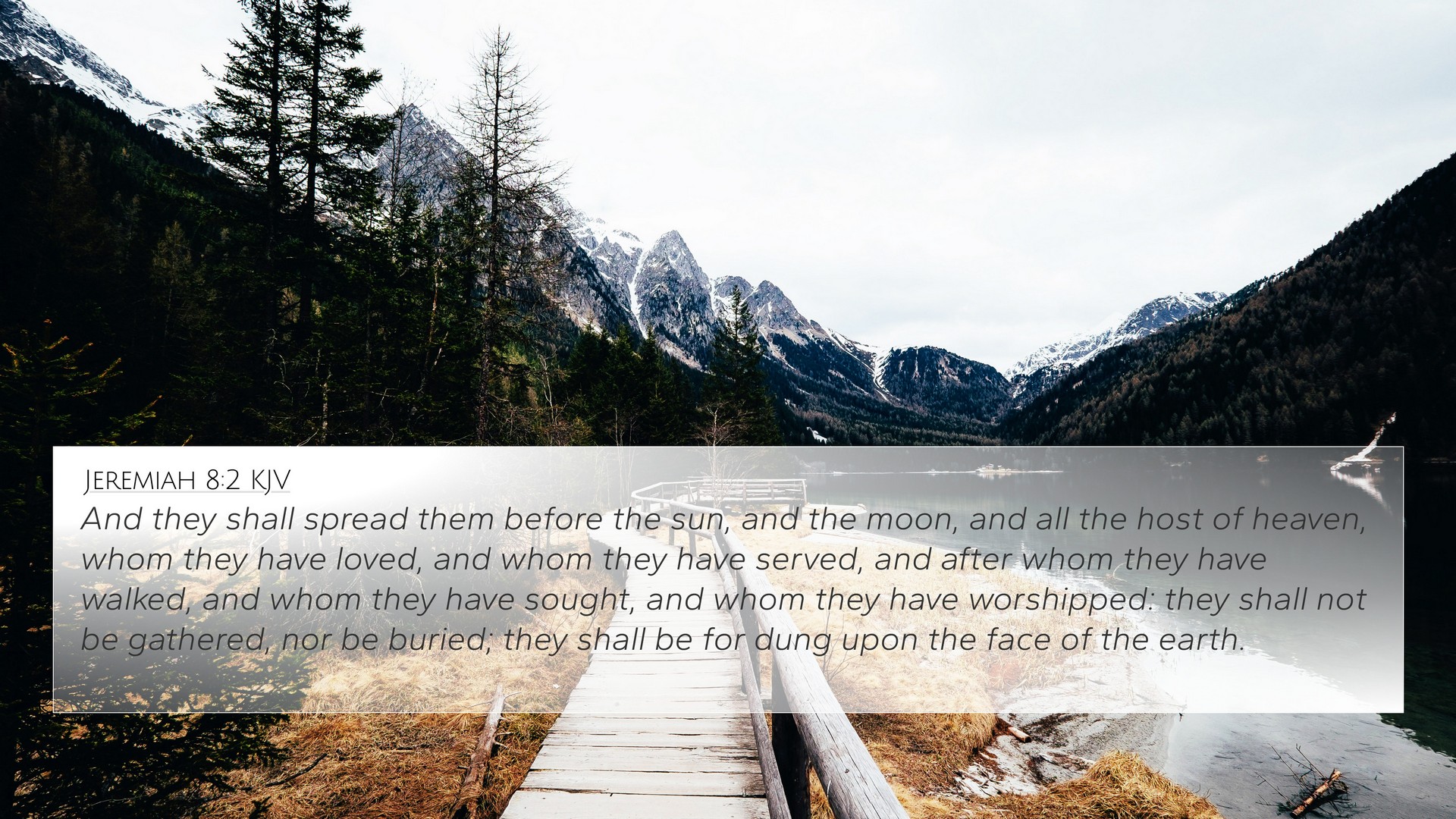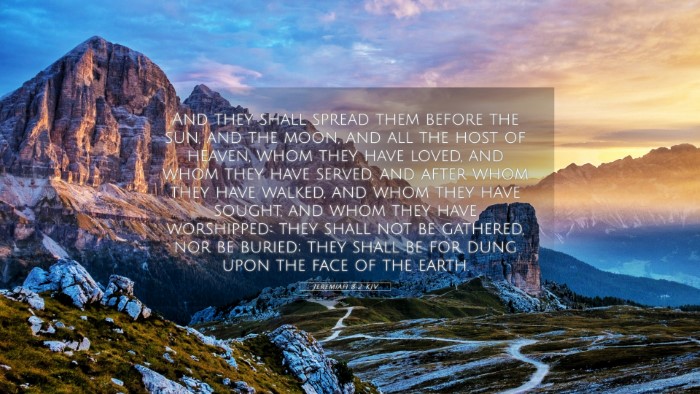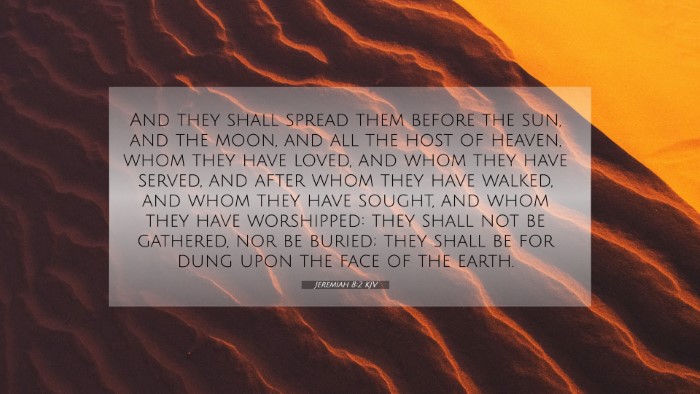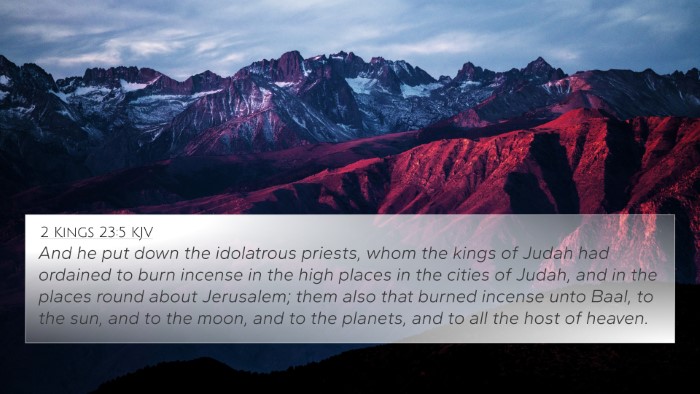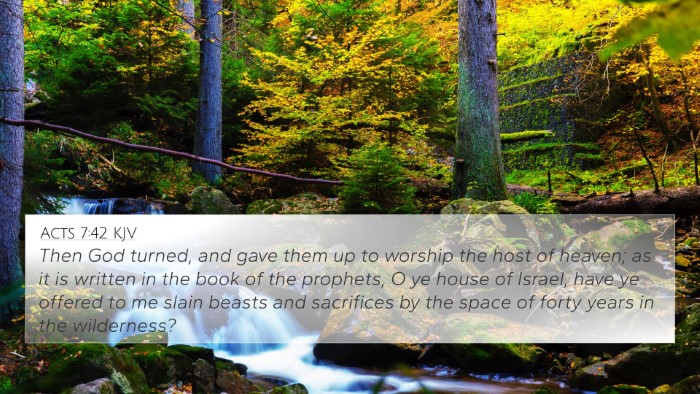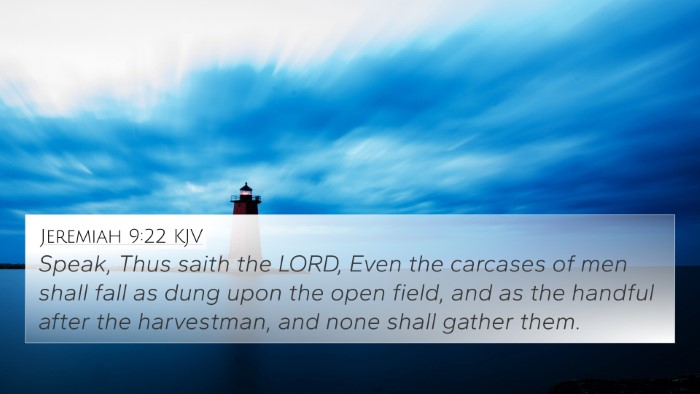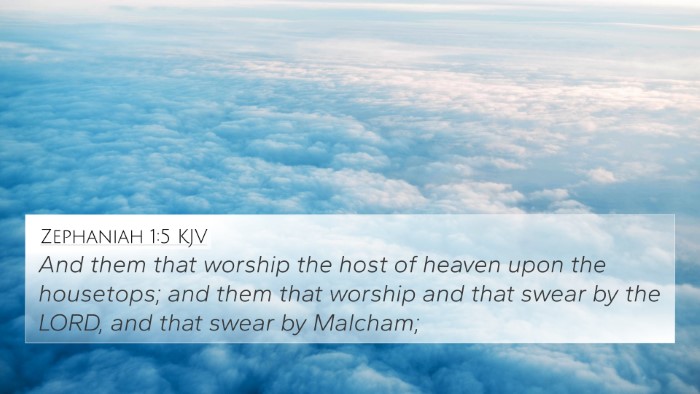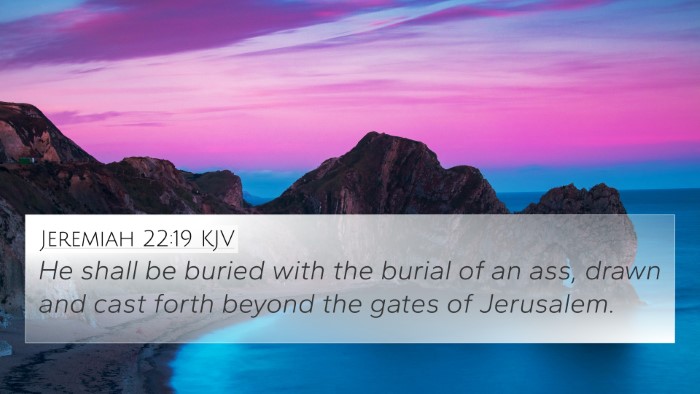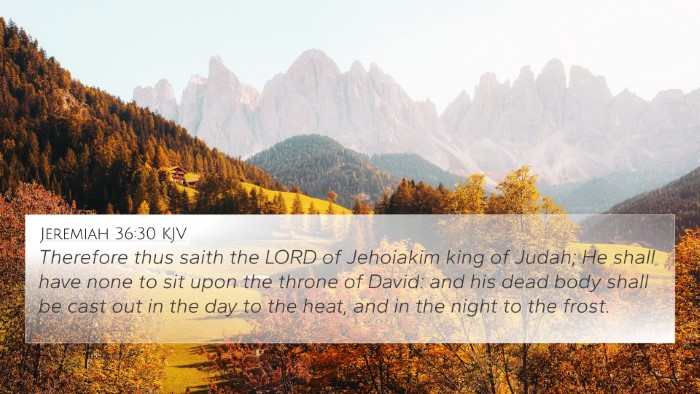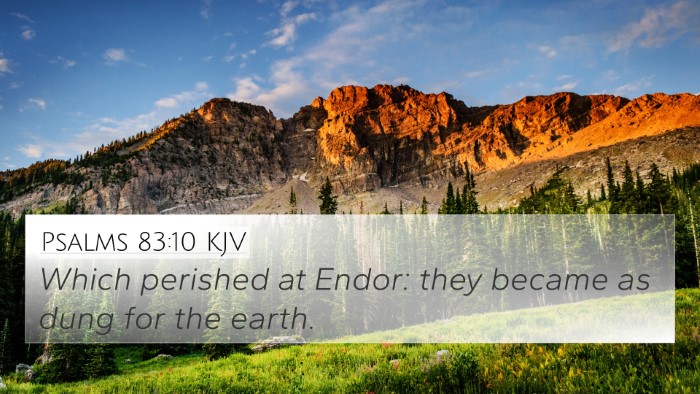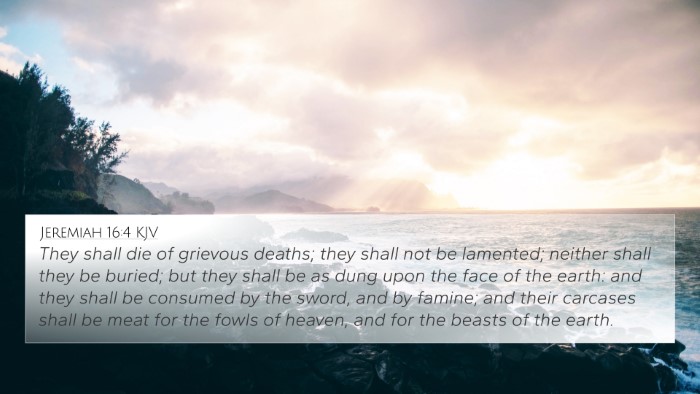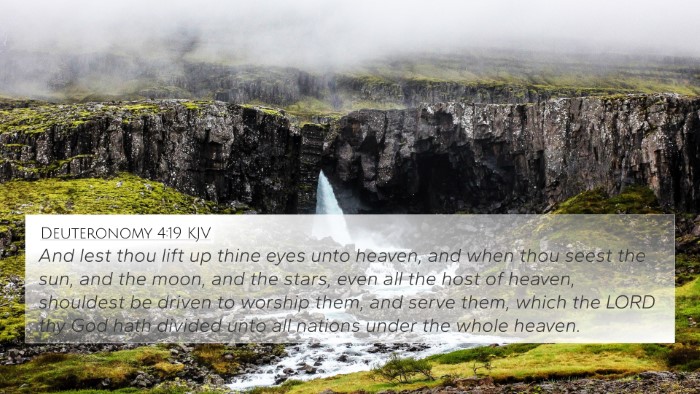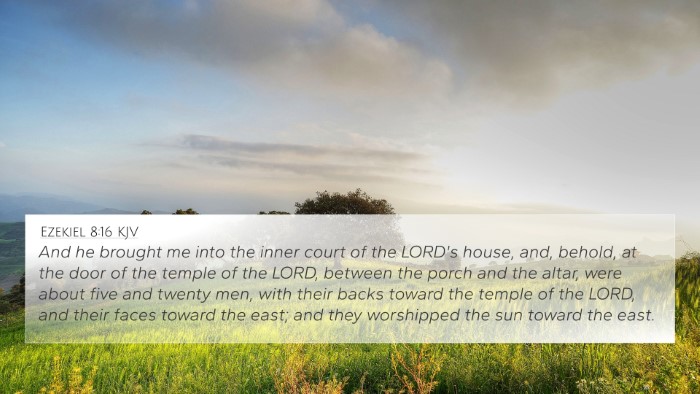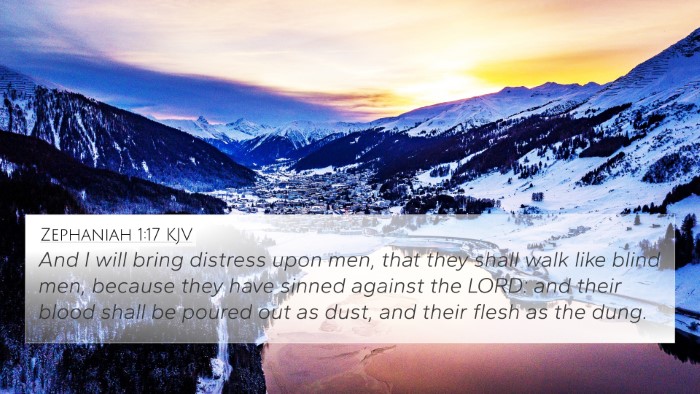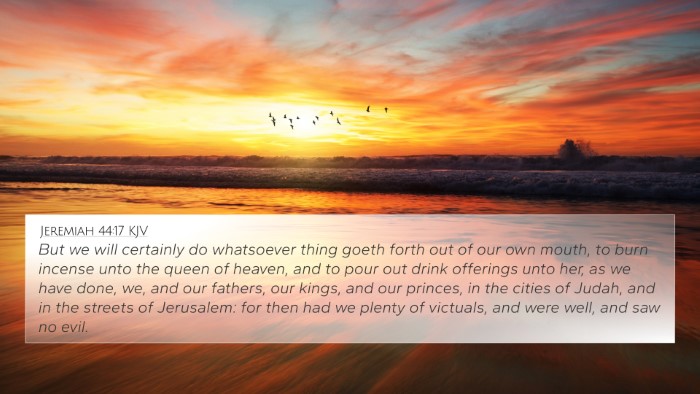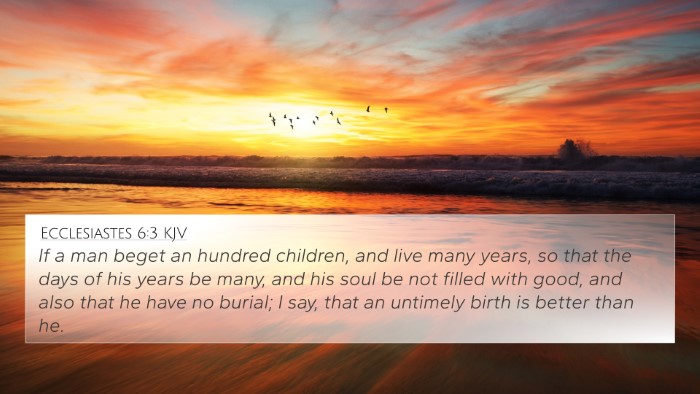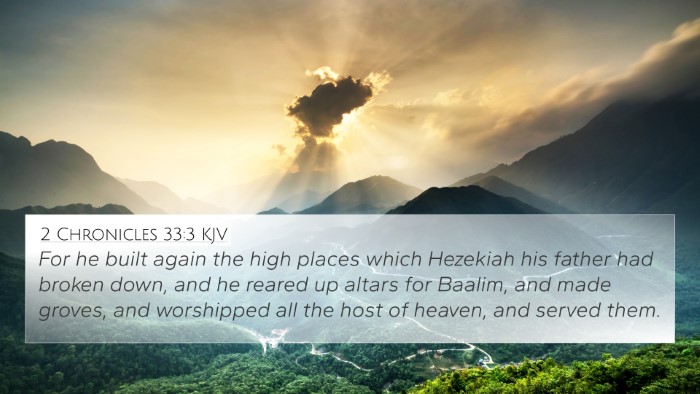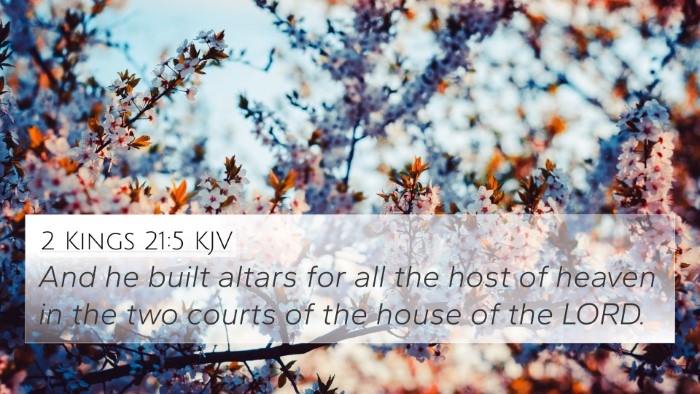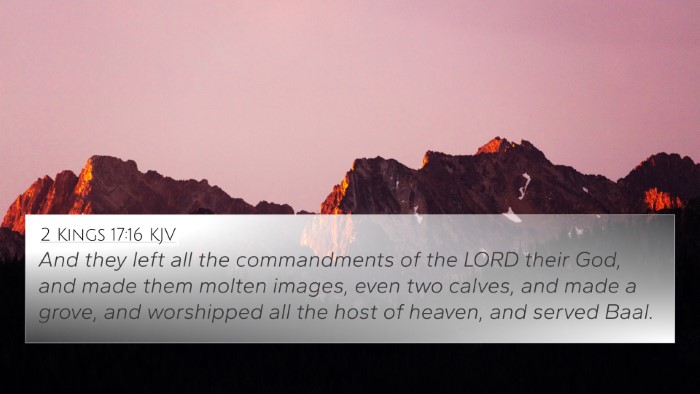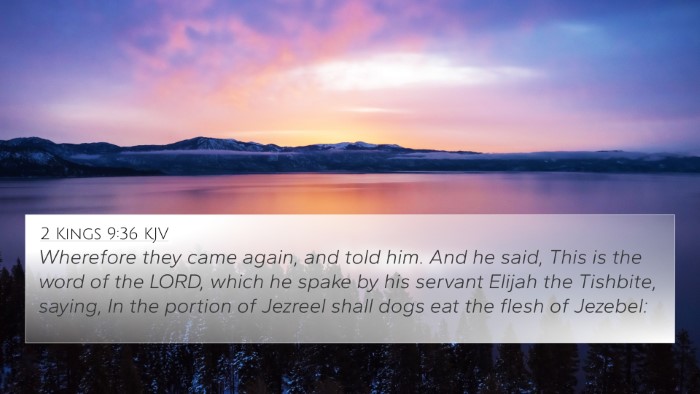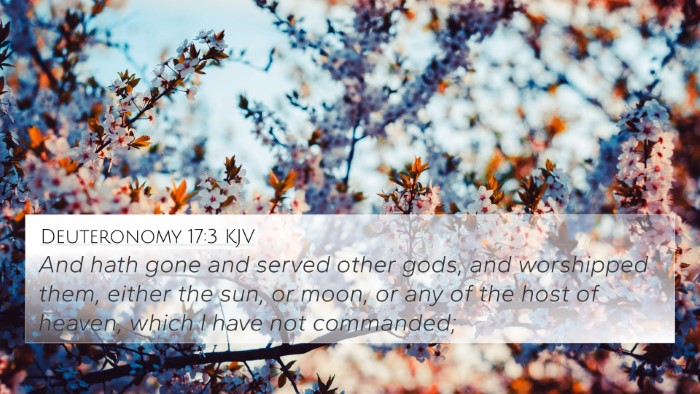Understanding Jeremiah 8:2
Jeremiah 8:2 states, "And they shall spread them before the sun, and the moon, and all the host of heaven, whom they have loved, and whom they have served, and after whom they have walked, and whom they have sought, and whom they have worshipped: they shall not be gathered, nor be buried; they shall be as dung upon the face of the earth."
Summary of Meaning
This verse is a vivid representation of the consequences of Israel's idolatry. It emphasizes the futility and the ultimate shame of worshipping celestial bodies rather than the true God. The metaphor of bodies being spread before the heavens illustrates both the disgrace and the complete abandonment by God.
Insights from Public Domain Commentaries
Matthew Henry's Commentary
Henry underscores the idea that those who forsake God for idol worship will ultimately face severe repercussions. He notes that the nations surrounding Israel are described as following after false gods, which results in desolation. His reflection centers on the sorrow of God's people as they are separated from Him due to their own unfaithfulness.
Albert Barnes' Commentary
Barnes explains that this verse illustrates the finality of judgment. The act of offering bodies to the heavens symbolizes a rejection of traditional burial rights, which indicates extreme disrespect and a total lack of relationship with God. He emphasizes that true worship leads to life, whereas idolatry leads to death and disgrace.
Adam Clarke's Commentary
Clarke elaborates on the imagery of dung, noting that it is a symbol of contempt and degradation. He points out that the people’s devotion to celestial bodies, whom they worship, will come back to haunt them. Clarke stresses that this verse serves as a poignant warning against turning away from God and highlights the ultimate fate of idolaters.
Cross References
- Isaiah 34:3 — "Their slain also shall be cast out, and their stink shall come up out of their carcases, and the mountains shall be melted with their blood."
- Jeremiah 7:33 — "And the dead bodies of this people shall be meat for the fowls of the heaven, and for the beasts of the earth."
- Deuteronomy 28:26 — "And thy carcase shall be meat unto all fowls of the air, and unto the beasts of the earth, and no man shall fray them away."
- Ezekiel 39:4 — "Thou shalt fall upon the mountains of Israel, thou, and all thy bands, and the people that is with thee: I will give thee unto the ravenous birds of every sort, and to the beasts of the field to be devoured."
- Leviticus 20:4-5 — "And if the people of the land do any ways hide their eyes from the man, when he giveth of his seed unto Molech, and kill him not: Then I will set my face against that man, and against his family."
- Jeremiah 16:18 — "And first I will recompense their iniquity and their sin double; because they have defiled my land, they have filled mine inheritance with the carcases of their detestable and abominable things."
- Matthew 24:28 — "For wheresoever the carcase is, there will the eagles be gathered together."
Thematic Connections
The themes of judgment, idolatry, and desolation are recurrent throughout the Bible. The practice of idol worship leads to detrimental consequences, which resonates with various scriptural passages.
Comparative Bible Verse Analysis
When analyzing Jeremiah 8:2 alongside the references provided, one can see a consistent principle: the dire repercussions that come from forsaking the worship of the true God. Such structures serve as a guide for understanding the interconnectedness of scriptural narratives and the overarching message of accountability in worship.
Inter-Biblical Dialogue
This verse invites readers to consider the dialogue between the Old and New Testaments regarding idolatry and its consequences. The notion that earthly pursuits or worship can lead to spiritual demise is echoed in the teachings of Jesus and the apostolic writings, reinforcing the importance of genuine devotion to God.
Tools for Bible Cross-Referencing
For those seeking to deepen their understanding of scriptural contexts, employing a Bible concordance is crucial. This tool allows readers to find individual verses and their occurrences throughout the text, aiding in linking Biblical scriptures thematically.
How to Use Bible Cross-References
When engaging in cross-reference Bible study, start by identifying key themes or words in a verse, such as those in Jeremiah 8:2. Utilize a cross-reference guide to find related passages, which can reveal the Bible’s consistent message regarding worship and its consequences.
Conclusion
Understanding Jeremiah 8:2 invites the reader to reflect on personal devotion, the seriousness of idolatry, and the nature of God's judgment. Through the insights gleaned from prominent commentaries and cross-referencing relevant scripture, one can appreciate the depth of meaning contained within this single verse of the prophetic book.
